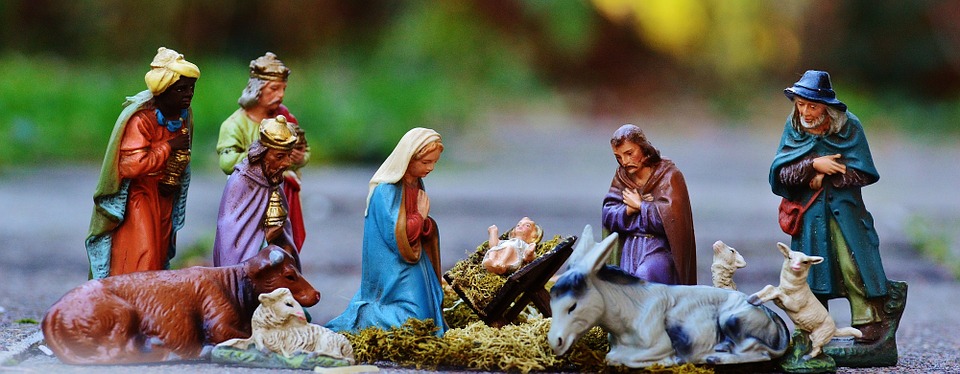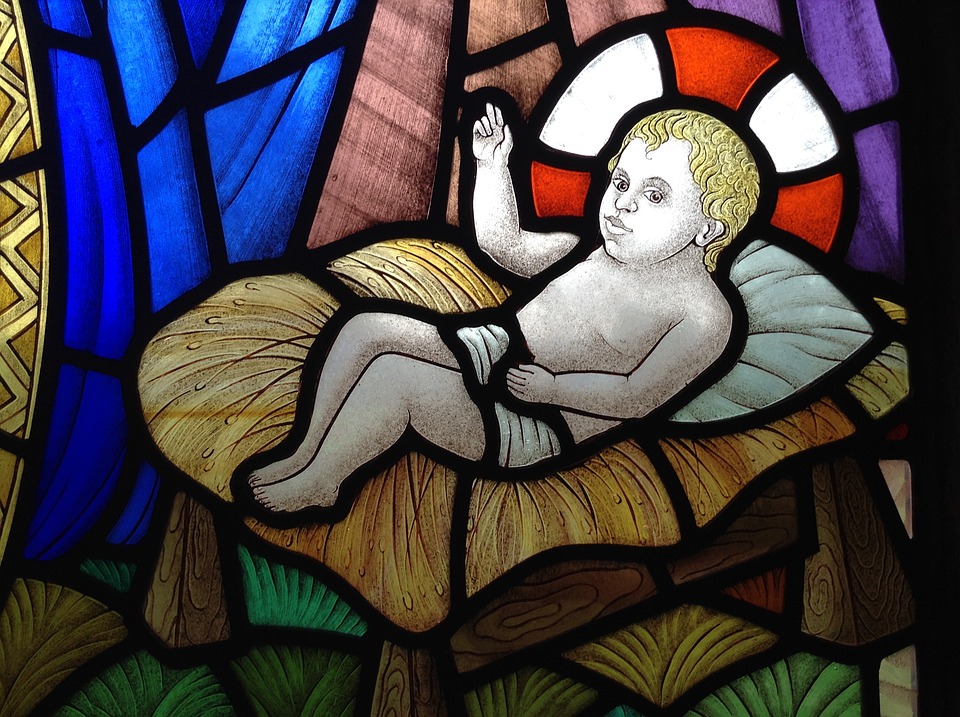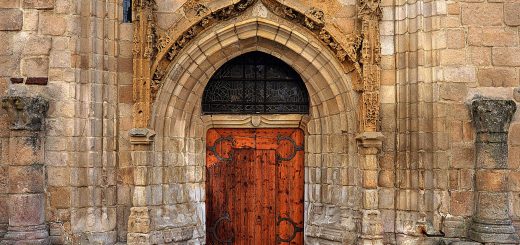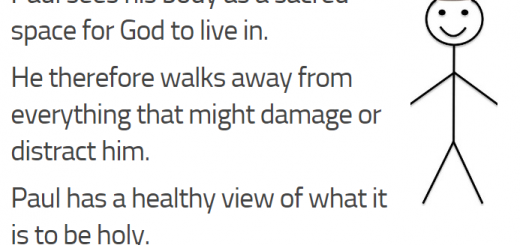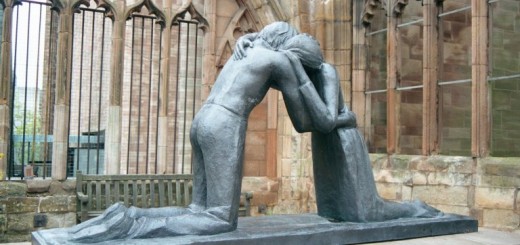There was no donkey…or inn…or stable…
Today we arrive at the account of the greatest moment in all of history: the birth of Jesus, God’s son, in human form. It’s a well-known passage, the story that all the nativity scenes and plays and carols are built on. As with the other parts of this incredible story, the details are sparse (which is surprising to me, given what a monumental event this would prove to be – one of those pivotal points in history that would change all that was to come). And so the story became embellished over the years to create the nativity story we have come to know and love.
You’re probably becoming uncomfortable already. Possibly a little defensive, ready to stand up for the Christmas story, scared that I’m about to rock the boat. Please don’t worry: I’m going to be gentle. I believe the truth of the Christmas story is life-changing and explosive. I simply worry that it can become buried. Maybe it’s time to strip back the ‘nice’ story so that the glory and mystery of God can truly be revealed.
In those days Caesar Augustus issued a decree that a census should be taken of the entire Roman world.(This was the first census that took place while Quirinius was governor of Syria.) And everyone went to their own town to register.
So Joseph also went up from the town of Nazareth in Galilee to Judea, to Bethlehem the town of David, because he belonged to the house and line of David. He went there to register with Mary, who was pledged to be married to him and was expecting a child. While they were there, the time came for the baby to be born, and she gave birth to her firstborn, a son. She wrapped him in cloths and placed him in a manger, because there was no guest room available for them. Luke 2:1-4
Jesus was born. That is fact. Jesus was born at a specific point in history into a specific spiritual situation. Caesar Augustus was emperor of the Roman Empire and Galilee and Judea fell under his rule. Living under Roman rule meant that God’s people were often exploited and sometimes badly treated. God had set them free from such tyranny (a much worse situation, admittedly) back when they were slaves in Egypt. God brought about the miraculous exodus. He heard the cry of His people. He delivered them from oppression and set them free. And now His people find themselves facing oppression again. They are again waiting for a deliverer to come to be set free. So when you’re asked to read this part of the Bible story aloud and struggle with Quirinius and wonder how it’s relevant to refer to Caesar Augustus, it’s entirely relevant because it provides us with a hint of the back story and the political context into which Jesus was born. Which matters.
If Caesar Augustus wants a census, then Caesar Augustus gets a census. What the emperor says goes. That’s the nature of living under Roman rule. Questioning his will or refusing to obey would get you in all sorts of trouble. Joseph has to return to Bethlehem, as he’s a descendant of David: King David, God’s chosen king. That’s relevant too. And so Mary and Joseph travel to Bethlehem to register.
But there’s no mention of a donkey. Did you notice that? Does that surprise you? We’ve built up a whole story around Mary riding on a donkey to Bethlehem but there is no donkey. Well, maybe there is no donkey. Somewhere along the way, we’ve made that detail up, because we’ve assumed or speculated (because that’s how people often travelled from A to B back then) and we’ve made it a key detail in our Christmas narrative. This is the only account of this part of the Christmas story. This is all we have to go on. And no, there’s no mention of a donkey. So let’s not make too much of the donkey and create a myth around the significance of Mary riding on a donkey – because we really have no idea whether she did or not. It doesn’t say.
While they were there, the time came for the baby to be born…
There’s no sense of urgency in the way this is written in the original. Mary may well have not been heavily pregnant when she travelled from Nazareth from Bethlehem. She would not have been expected to travel in that state. That would be no way for Joseph to care for his wife and unborn child. And so they may have stayed in Bethlehem some time. It probably was not the big rush that we portray it as – Mary having her first contractions as she traipses around Bethlehem in the cold and dark looking for a place to deliver her baby.
Rat a tat tat, rat a tat tat
No! No! No!
There isn’t any room
And you can’t stay here,
There isn’t any room for strangers.
The night maybe cold
And the wind maybe chill
And full of nasty noises in the dark
And dangers!
No, there isn’t any room,
There isn’t any room,
There isn’t any room for strangers. Children’s Christmas Song
Sorry to break it to you, but there’s no evidence that this was ever the case for Mary and Joseph. The whole innkeeper thing is not grounded in truth. My favourite ever kids’ Christmas book has always been ‘Jesus’ Christmas Party’ and is built around the character of the grumpy innkeeper. The innkeeper has a central role to play in our nativity plays. The message of there being no room in the inn for the Saviour of the world is a compelling one. We draw significance from Jesus being homeless at the time of his birth (he was definitely homeless later in his life, that’s for sure).
But the word for ‘inn’ in this account is ‘kataluma’ and it’s a very different word from the word ‘inn’ when it’s mentioned in the story of the Good Samaritan. ‘Kataluma’ means guest room within a private residence. It’s reflected in this translation of the Bible I’ve used here – NIV (UK). There was no ‘guest room’ available to them. Joseph would have had many relatives in Bethlehem. Hospitality was a huge priority in Jewish times and there was no way that family members would turn this young man and his pregnant wife away. But everyone had descended on Bethlehem and there was no guest room left for the couple so they had to make do with the main room of the house, where the animals were brought into at night to protect them from the cold. So yes, there would have been a manger for the animals to feed from, but no, there was no draughty stable.
Researching all this left me on shaky ground, I have to admit that. It made me feel that I’d been living a lie for the past fifty years. Guilty that I’d been a part of perpetuating a myth that potentially was obscuring the real truth of this remarkable event. But looking back, I’d been unsettled for many years about the Christmas story. It didn’t sit right with me. It didn’t add up. But I was too lazy or scared to look into it.
So where does leave me and anyone like you reading this? Should we boycott all nativity plays and stubbornly refuse to sing the carols and songs that perpetuate this myth? I’m not calling for an all out revolution. I think our response needs to be a personal response. I’m not telling you what to do. For many, all that I’ve said may be nothing new. For some, you may never have heard all this before. Do what’s right for you at this time.
For me, I am going to focus on and celebrate that which we know to be true.
Mary gave birth to her firstborn, a son.
This tiny baby was going to change the world forever. This tiny baby was God’s own son. Love and light and hope and freedom and salvation all came down at Christmas (whenever Christmas was!) – all this glory held in arms, wrapped in cloths, laid in a manger. Vulnerable, exposed, totally trusting and dependent.
That calls for a huge celebration, a celebration like no other.
This is what I plan to celebrate this Christmas and always.

